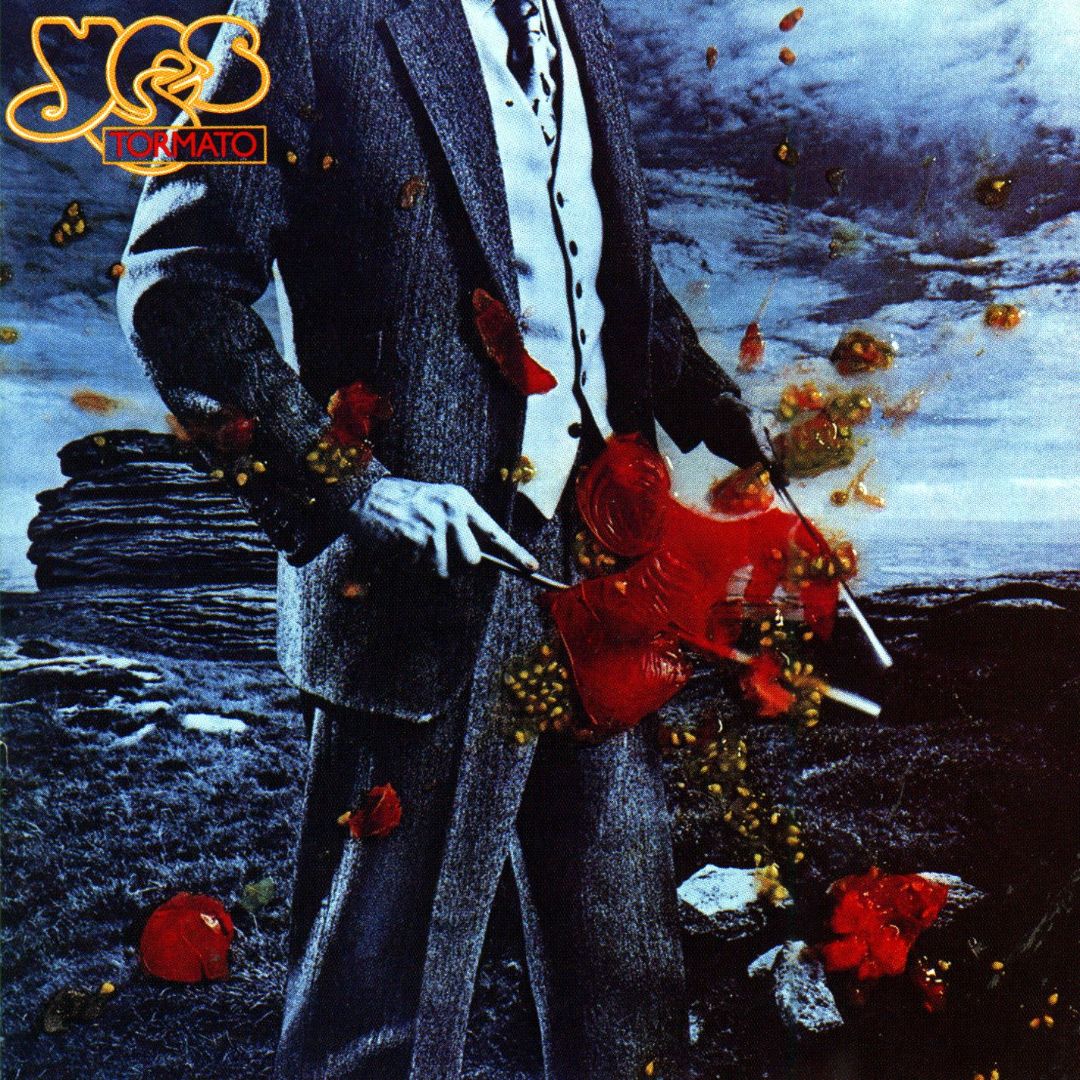
Tormato (1978)

1. Future Times/Rejoice
2. Don't Kill the Whale
3. Madrigal
4. Release, Release
5. Arriving U.F.O.
6. Circus of Heaven
7. Onward
8. On the Silent Wings of Freedom
If Going for the One was Yes proving they could adapt without selling out, Tormato is the sound of that goodwill unraveling in real time. The irony isn’t lost on anyone: the band called Yes delivers an album that had many fans shouting “No” on first listen. Even the cover art feels like a visual gag at their own expense—famously splattered with a tomato, as if someone at the label anticipated the urge to pelt it with produce.
It’s especially disappointing given the context. Going for the One had been a genuine return to form, and this time—for once—there were no lineup changes to blame. The classic core of Anderson, Howe, Squire, Wakeman, and White all remained intact. In theory, that stability should have produced something tight and focused. In practice, the band sounds adrift, unable to settle on any clear vision of what they’re trying to be.
A huge part of the problem is Rick Wakeman’s keyboards. Where his work on the previous album added color and atmosphere, here it’s all bombast and distraction. His array of synths often feels like it’s fighting the rest of the band, smothering any semblance of melody under waves of garish sound effects. The subtlety and taste he’d once brought to the arrangements are nowhere to be found.
Listening to much of the album is like watching a chaotic parade of prog clichés trudge by with all the subtlety of a marching band in a wind tunnel. Tracks like Release, Release and Future Times/Rejoice are prime offenders. The former even includes a mid-song Alan White drum solo—complete with piped-in stadium crowd noise—seemingly for no better reason than “why not?” White’s a fine drummer, but the whole stunt feels tacked on and absurd. Repeated listens offer no reward; the songs remain a blur of busy instrumentation with nothing memorable to anchor them.
Then there are the moments where Wakeman seems determined to literally score the song titles. Don’t Kill the Whale features cartoonish “whale” noises that border on parody, while Arriving UFO leans into wobbly sci-fi effects that might have impressed in a 1950s B-movie. To its slight credit, Arriving UFO is at least a passable listen if you can tune out the cheesiness, but it still feels like an idea in search of a song.
Circus of Heaven might have been salvageable if the music had matched its lyrical concept. Instead, it collapses under the weight of its own kitsch, not helped by the inclusion of Jon Anderson’s young son delivering the immortal line lamenting the lack of “lions and tigers.” It’s a moment so earnestly misguided it’s hard to tell whether to laugh or wince.
There are, admittedly, flashes of what could have been. Onward is a gentle ballad with genuine warmth, its softness standing in stark contrast to the album’s general tendency toward overwrought bombast. And Silent Wings of Freedom closes things with a certain urgency and drive that hints at the band’s better instincts. But by then it feels too little, too late—buried at the end of an album that feels more like a fight between the band members than a collaboration.
It’s no surprise that after Tormato, Yes was headed for another lineup overhaul—this time an even bigger one than usual. It’s the sound of a band that, despite all its talent, had lost its sense of what made them great in the first place. And while they’d eventually find their footing again in a radically different form, here they were content to throw tomatoes at themselves—and dare the audience not to join in.
Go to the Next Review
Go back to the main page